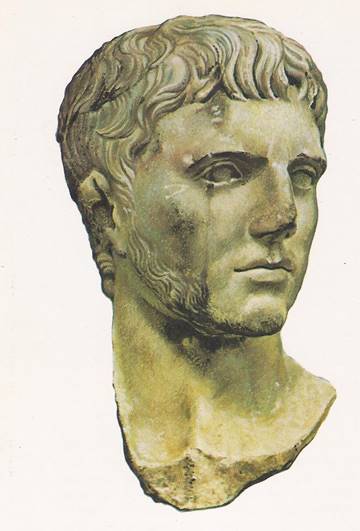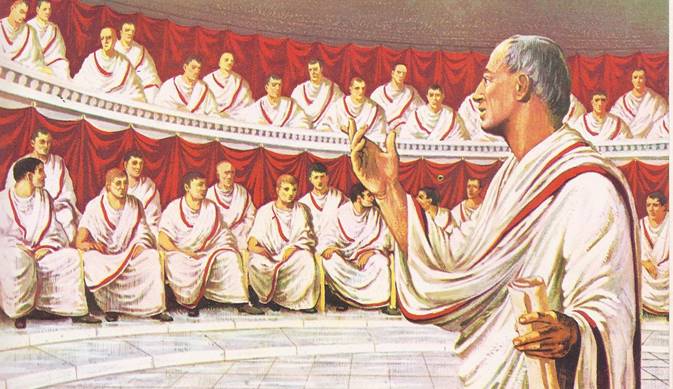FEW AMERICANS noticed the advertisement that appeared in the New York newspapers on May 1, 1915. Signed by the Imperial German Embassy in Washington, it reminded Americans that Germany was at war with Britain. It warned that British ships in the water near the British Isles were “liable to destruction,” and that “travelers sailing in the war zone on ships of Great Britain or her allies do so at their own risk.” That same day, the British steamship Lusitania sailed from New York and among the 1,250 passengers were 188 Americans. On May 6, when the Lusitania was off the …
Read More »Tag Archives: Mediterranean
The Rise of Napoleon Bonaparte 1796-1802
In March of 1796, a new commander named Napoleon Bonaparte was placed in charge of the French army on the Italian front. The soldiers and officers were amazed when they first saw him. He was short, thin, pale, only twenty-seven years old and spoke French with an Italian accent. Napoleon was not an unknown. He had first come to public attention as the young artillery officer who drove the British fleet from the harbour at Toulon. Later, as a brigadier general, he had successfully defended the Convention from an uprising in Paris. What most people did not know was that …
Read More »Venice, City in the Sea 1350 – 1590
The houses of Venice are “like sea-birds half on sea and half on land,” said Cassiodorus. An officer of a king of the Goths, Cassiodorus saw Venice in 537. It was a little settlement of huts built on the mud-flats in an out-of-the-way lagoon. Its people were refugees‚ Italians who had been driven from their homes by a horde of barbaric invaders. They were safe in the lagoon, for no stranger could navigate the treacherous channels. For the sake of safety, they were content with comforts that were simple at best. “In this place,” Cassiodorus said, “rich and poor are …
Read More »Arabia, Mother of Religions 3000 B. C. – 570 A. D
ARABIA, the big, boot-shaped peninsula off the northeast corner of Africa, is one of the hottest and driest regions on earth. It is also extremely rugged. Almost all of it is made up of mountains‚ deserts and immense plains of sand broken by hills. Not a single river crosses it, only dry riverbeds called wadis which quickly carry away the little rain that falls. Water is so scarce that trees and plants can grow only along some of the coasts and in small “islands” of green called oases, mostly found in the wadis, which dot the vast interior. Yet this …
Read More »Byzantine Glory A.D. 610-1057
The period from 610 to 717 was one of the darkest in Byzantine history. During that time, the edges of the empire crumbled under the pressure of powerful enemies. A people from northern Italy, the Lombards, conquered more than half of Italy. In central Arabia, the Arab tribes had joined together under the religion of Mohammed and marched against their neighbors. They took the kingdom of Persia, invaded Palestine and in 658 captured Jerusalem. The conquering Moslems, as the followers of Mohammed were called, swept on and soon took over Syria and Egypt. They marched along the northern shore of …
Read More »The New Capital: Constantinople A. D. 306-532
EMPEROR Constantine’s decision to build a new capital for the Roman Empire in the East did not come as a surprise to the people of the empire. Rome had lost much of its influence as the seat of government and emperors avoided the city. They preferred to build castles for themselves in distant provincial cities. Emperor Maximian, for example, had ruled from Milan. Emperor Diocletian had moved to Nicomedia, far to the east in Asia Minor and ruled from there. Constantine had many good reasons for turning eastward in searching for a site for his new capital. Most of the …
Read More »Rome and the Christian Church A.D. 64 -180
TRUMPETS sounded the fire alarm in Rome on the night of July 18, in the year 64. It seemed that the flames first broke out in the crowded section near the Great Circus and spread rapidly, driven by a strong wind to row after row of wooden houses. Sparks carried by the wind started other fires. People fled in panic. The fire roared on unchecked, continuing for six days and six nights. When it was finally brought under control, most of the city lay in ruins. People could not believe that one small accidental fire somewhere could have caused all …
Read More »The End of the City A. D. 192 – A. D. 476
ON ROME’S first day, Romulus took a bronze plow and drew a magic circle around seven of the hills that stood beside the River Tiber. The magic of the circle was protection against the evils outside. More important, it bound together the people who were inside, making one city where there had been six towns. Seven hundred years later, Augustus drew another magic circle, this time around all the Mediterranean world. It kept out barbarian and Asian invaders and held together millions of people, making one empire where there had been dozens of races and nations. So long as the …
Read More »The Second Triumvirate 43 B. C. – 30 B. C.
AS THE news of Caesar’s death spread through Rome, sorrow, anger and fear took hold of the city. On March 17, two days after the murder, the Senate met again. Cassius, Brutus and the other assassins took their usual places. There was no doubt that most of their fellow senators felt that they had done the right thing in ridding Rome of a tyrant, but Caesar’ s veterans were still in the city, taking their orders now from Marcus Aemilius Lepidus, who had been his Master of the Horse, the commander of the cavalry. Mark Antony was still consul, he …
Read More »The City Divided 130 B. C. – 70 B. C.
MARCUS TULLIUS CICERO, a young statesman known for his dramatic speeches, stood before a panel of judges in a courtroom in Rome. He stared at them angrily. For fifty days he had travelled through Sicily, collecting facts about the crimes committed by Caius Verres, the man who was on trial. Now the judges had told him that there would not be time to listen to his evidence. Cicero knew that the judges had been bribed. For it was no ordinary criminal that he meant to send to prison or to death. Caius Verres was an aristocrat and a senator and …
Read More »








